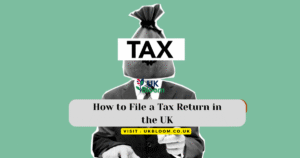At UKBloom, we understand how overwhelming it can be to navigate the UK tax system—especially when you have income from outside the UK. Many newcomers, students, and skilled workers ask us about the foreign income rules in the UK in 2025—and whether they’ll need to pay tax on money earned abroad.
In this guide, we’ll break down how foreign income is treated under UK tax law in 2025, including residency rules, remittance basis, reporting responsibilities, and common real-world scenarios for new UK residents.
Table of Contents
What Is UK foreign income tax rules?
Foreign income includes any income you receive from outside the UK, such as:
- Overseas salary or freelance work
- Rental income from property abroad
- Dividends or interest from non-UK banks or investments
- Foreign pensions
- Trust income or inheritances from abroad
How this income is taxed in the UK depends largely on your residency status and how (or whether) you bring the money into the UK.
UK Residency and Tax: Why It Matters
The UK tax system is based on residency, not citizenship. That means whether you pay tax on foreign income depends on whether you are considered a UK resident for tax purposes in a given tax year.
How Is Residency Determined?
In 2025, residency continues to be assessed using the Statutory Residence Test (SRT), which considers:
- Number of days spent in the UK
- Ties to the UK (e.g., work, family, property)
- Previous tax residency history
You are generally UK tax resident if you spend 183 days or more in the UK during a tax year or meet specific connection-based tests.
To assess your tax residency, you can refer to Statutory Residence Test.
Foreign Income Rules in UK in 2025: Who Pays Tax?
If You Are UK Resident in 2025
As a UK tax resident, you are generally liable to pay UK tax on your worldwide income, unless you are eligible to use the remittance basis.
The Arising Basis (Default)
If you do not claim the remittance basis, your foreign income is taxed in the UK as it arises, regardless of whether you bring it into the country.
You must:
- Report it on your Self Assessment tax return
- Pay income tax according to your income band
The Remittance Basis (Optional)
If you’re a non-domiciled UK resident (commonly referred to as “non-dom”), you may elect to be taxed only on the foreign income you bring into the UK.
Conditions:
- You must apply annually via Self Assessment.
- In 2025, the £30,000 and £60,000 remittance basis charges still apply for long-term residents (7–12 years or 12+ years, respectively).
- First-time or short-term residents (under 7 years) may use the remittance basis without a charge.
If You Are Not UK Resident in 2025
If you’re not considered UK resident under the SRT, you are only taxed on your UK income (e.g., wages from a UK job, UK property income). Your foreign income is not taxed in the UK.
Special Cases and Real-World Examples
1. An International Student on a Tier 4 Visa
Scenario: Meera is studying in the UK and earns money through freelance work for an Indian company.
- If Meera becomes a UK tax resident, her Indian income is taxable in the UK.
- She may choose the remittance basis and only be taxed if she brings the money to the UK.
- If she uses the money for tuition paid from a UK account, it’s considered remitted.
2. A Skilled Worker with Overseas Investments
Scenario: Daniel works in London but has rental property in South Africa.
- As a UK resident in 2025, Daniel must report foreign rental income unless he claims the remittance basis.
- If he’s lived in the UK for 10 years, he must pay a £60,000 charge to use the remittance basis.
3. A Non-Resident Business Owner
Scenario: Lian lives in Singapore but owns a UK-based e-commerce business.
- Lian is not a UK tax resident, so she only pays UK tax on her UK-generated business income, not on foreign earnings.
Reporting and Compliance
Do You Need to File a Tax Return?
You must complete a Self Assessment tax return if:
- You claim the remittance basis
- You receive foreign income over £2,000
- You have untaxed UK or overseas income
- You are self-employed or a landlord with foreign assets
Visit the HMRC Self Assessment Guide for filing deadlines and guidance.
Double Taxation Agreements (DTAs)
The UK has double taxation treaties with many countries to ensure you don’t pay tax twice on the same income. These treaties may:
- Reduce your UK tax
- Allow foreign tax credits
- Exempt certain income from UK tax
Best Practices for Managing Foreign Income in 2025
- Keep accurate records of foreign earnings, taxes paid abroad, and money transferred to the UK.
- Consider using separate foreign accounts to track what is or isn’t remitted.
- Seek advice before claiming the remittance basis, especially if you’ve been in the UK for 7+ years.
- Use HMRC’s Foreign Income pages or speak to a tax adviser for tailored help.
You can also explore the [UKBloom Income Tax Calculator] and [Guide to Filing a Tax Return] for practical support.
Key Changes and Continuity in 2025
There have been no major overhauls to the foreign income rules in the UK in 2025, but HMRC is increasing its focus on:
- Global account transparency through data-sharing agreements
- Offshore tax compliance
- Digital reporting tools
It’s more important than ever to stay compliant and informed.
FAQs: Foreign Income Rules in UK in 2025
Do I have to pay UK tax on foreign income if I don’t bring it to the UK?
Only if you claim the remittance basis and are eligible. Otherwise, you’re taxed on foreign income regardless of whether you bring it into the UK.
What is considered “remitted” income?
Income is “remitted” if it is brought into the UK directly or indirectly, including:
- Transferring money to a UK bank account
- Buying UK property or goods
- Paying UK bills with overseas funds
Is there a tax-free allowance for foreign income?
Yes. The Personal Allowance (£12,570 in 2025) applies to total income, including foreign earnings unless you claim the remittance basis (in which case you lose the allowance).
What happens if I fail to declare foreign income?
HMRC can issue penalties, interest, or even legal action for underreported or undeclared foreign income. Always report truthfully and on time.
Conclusion
Understanding the foreign income rules in the UK in 2025 is crucial for anyone who earns money from abroad while living in the UK. Whether you’re a new student, an entrepreneur, or a skilled worker, your tax residency status will determine how your foreign income is taxed.
At UKBloom, we’re here to help simplify your move to the UK—offering reliable advice on tax, visas, work, and daily life. Be sure to explore our tools and guides to stay informed, and when in doubt, consult a qualified tax adviser.
⚖️ Disclaimer
This article is for informational purposes only and does not constitute legal or immigration advice. Please refer to official UK government sources or seek legal support for specific guidance.






